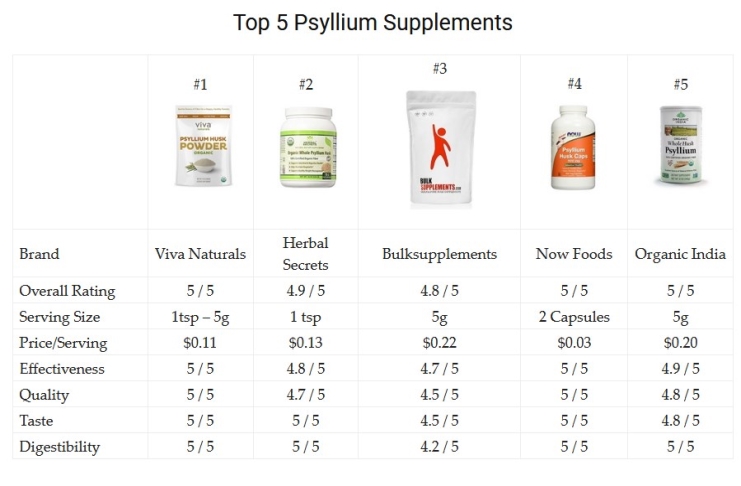It would be nice if vitamins gave us immediate superpowers. Just like Captain America, we’d get a dose or two and in a couple of minutes, we would possess superhuman strength. But life is not an action movie, and our bodies have their limits. And vitamins need time and the right environment to do their work.
Our bodies are made up of a lot of moving parts, big and small. Anytime we ingest something, our bodies have to process and distribute what we take in. This process includes terms like deficiency, dosage, absorption rate, and solubility. Let’s take some time to go over what these terms mean and discuss how long it takes for supplements to take effect.
What Are Vitamins?
According to Harvard Health, vitamins are organic substances that are essential for the healthy functioning of the body. Vitamins provide our cells with the necessary nutrients to work, grow, and develop. Vitamins are typically grouped into two categories:
Fat-soluble Vitamins
Vitamins that are stored in the body’s fat are called fat-soluble vitamins. There are four fat-soluble vitamins (A, D, E, and K). For these vitamins to be efficiently used by the body, there needs to be some fat present in a person’s diet.
For many people, they are surprised to find out that vitamin D is a fat-soluble vitamin that many people don’t get enough of. You may know vitamin D as something we get from the sun. However, due to how much our lives are now lived indoors and the changes to our diets, vitamin D is now a common deficiency.

Water-soluble Vitamins
Water-soluble vitamins have to dissolve in water before the body can process them. Most water-soluble vitamins can’t be stored in the body. If there’s too much of a water-soluble vitamin, the body disposes of it in the urine. Because the body doesn’t store these vitamins, a consistent amount should be taken regularly to prevent vitamin shortages.
The only water-soluble vitamin that can be kept in the body is vitamin B12. This vitamin can be stored in the liver, but the water-soluble vitamins (C and the B-complex vitamins, and folate) need to be consumed consistently.
Vitamin Deficiency
A vitamin deficiency happens when there is a shortage in the body of one or more vitamins that are needed for the body to function correctly. Vitamin deficiencies can occur for several reasons and can be challenging to spot.
Sometimes, if a diet doesn’t have a variety of nutritious foods, the body can become deficient in one or more vitamins. Other times, a vitamin deficiency occurs if the body is not well. In these cases, the vitamins are present in the body, but the body can’t process the vitamins correctly so that they can be used. Smoking, alcohol use, and drugs can also cause vitamin deficiencies.
The best way to confirm a vitamin deficiency is to ask your healthcare provider. They can monitor your symptoms and, if necessary, perform bloodwork to see if you are deficient in a particular vitamin. However, you can seek assistance if you see any signs of vitamin deficiency.
Signs of Vitamin Deficiencies
Spotting vitamin deficiencies can be difficult. But some common vitamin deficiencies can be identified. Here are a few for you to look out for.
Thinning or Brittle Hair
Although our hair is made of dead skin cells, our scalp and hair follicles are not. B vitamins, like vitamin B12, are essential for strong and healthy hair.
Mouth Sores or Burning Sensations on the Tongue
If you find yourself frequently having sores or a burning sensation on your lips and tongue, you may have a vitamin B12 deficiency. Vitamin B12 is necessary to get oxygen to your body’s tissues. The body’s skin cells and digestive tract can start to have problems if there’s not enough vitamin B12 in the body.
Fatigue and Sleepiness
If you feel like you’re running on empty all the time, you may be deficient in vitamin D or vitamin B12. When people don’t get enough of either vitamin, they may start to feel sleepy, even after a full night of sleep. Vitamin D helps to energize the body and keep people awake. Vitamin B12 helps the mind to think clearly and make the body work efficiently.
Skin Rashes or Bumps Arms
A lack of vitamin A can cause a skin condition called keratosis pilaris. The bumps that come with these conditions don’t itch, but they can be bothersome. Vitamin A helps to smooth the skin and assists with repairing wounds. If you don’t receive enough vitamin A, your skin can start to become dry and bumpy.
Dry Eyes or Blurry Vision
When vitamin A is severely lacking, the eyes can suffer. Dry eyes and blurry vision can result from not having enough vitamin A. If your mother told you carrots are good for your eyes, then she knew what she was talking about. Beta carotene, which is present in carrots, is a precursor to vitamin A. Deficiency in vitamin A can also cause night vision problems. If you find yourself struggling to see in the dark and rubbing your eyes, you may be low in vitamin A.
Taking Vitamin Supplements
 We’ve established what vitamins are and what can occur if we don’t have enough in our system. If you have a well-balanced, colorful, and nutritious diet that is low on fat and high in fruits and vegetables, then you probably don’t require any vitamin supplements.
We’ve established what vitamins are and what can occur if we don’t have enough in our system. If you have a well-balanced, colorful, and nutritious diet that is low on fat and high in fruits and vegetables, then you probably don’t require any vitamin supplements.
The truth is that our diets probably don’t meet the “well-balanced and nutritious” criteria. If your diet is like most people’s, then you would likely benefit from vitamin supplements.
Most people believe that once they start taking vitamins, they will feel better the very next day. Although it would be nice if that were the case, it will take some time for supplements to take effect. In the end, how quickly a vitamin supplement will start working will significantly depend on how deficient you were, to begin with.
Dosage and Frequency
Multivitamins and other supplements should be administered once or twice a day, depending on a doctor or manufacturer’s recommendations. Always remember to follow the recommended dosage instructions.
For supplements to take effect, they need to be taken consistently at the correct dosage. Especially when taking water-soluble vitamins, you want to keep vitamins in your system at a level that your body can use. By taking vitamins consistently, you can ensure that enough of the supplement is present to do their job. Sticking to what is prescribed by a doctor or manufacturer is essential.
Absorption Rate
Bioavailability, also known as absorption rate, is the degree and speed at which something is absorbed into the body. Absorption rates don’t sound very interesting, but they make a huge difference when it comes to vitamins. Different vitamins have different absorption rates regardless of what form they come in.
What does affect absorption rates are an individual’s age, their health, gender, genetics, their digestive system, and even what time of day they take the supplements. Every person is different, so absorption rates can vary from person to person. This variance can make it difficult to predict how quickly it will take for supplements to take effect in each individual.
How Long Does It Take For Vitamins To Work?

For some, you can start feeling the effects of vitamins or supplements almost immediately, within 1 or 2 days. Typically this happens if you have serious deficiencies and now your body has finally gotten some relief. If you have more mild symptoms, it will generally take a few weeks to notice a difference.
For you to know if a supplement is working, you need to see if what you’re taking them for is improving. For instance, if you started taking vitamin D supplements because you’ve felt tired–do you feel better after taking them for a month?
If your healthcare provider determined that you were vitamin deficient from blood work, your provider might ask you to take another sample after a designated period. By doing this, they can compare if your vitamin levels have increased, and if they are working correctly.
Should You Stop Taking Vitamins if There Are No Results?
If your healthcare professional recommended the vitamin supplement, you might want to seek their approval before stopping. Also, because vitamins have different dosages and absorption rates, it’s difficult to tell how long to wait to see if they are working. However, if you’ve taken a bottle of vitamin D as recommended, and you still feel fatigued, you may want to consult a healthcare professional. It may not be that the vitamin isn’t working; it could be that your fatigue wasn’t a result of a vitamin D deficiency.
Vitamin Supplement Side Effects
One reason you may want to stop taking vitamins is if you experience any severe side effects. Initially, as the body gets used to taking a supplement, you may experience diarrhea, nausea, and stomach upset. These eventually lessen and go away as the body adjusts.
For other people, however, they may experience an allergic reaction. Signs of an allergic reaction are rash, itching, difficulty breathing, and swelling. If you experience any of these symptoms, you should stop taking the supplement immediately. Consult with a healthcare professional for advice about the allergic reaction.
What Vitamins Can’t Do
Vitamin supplements are not substitutes for a healthy diet. Vitamin supplements are meant to do just that — supplement our diet. We do need to make an effort to eat a well-balanced and nutritious diet. For some people, like vegans, they may need to take vitamin B12 to supplement the nutrients that they may not get enough of in their diets.
Taking vitamin supplements is not a permission to eat potato chips, fried chicken, and soda for breakfast. Being responsible for our health means knowing what we can do for ourselves and when we need help.
Vitamins will not work overnight, and taking a large amount all at once will not make up for a deficiency. When it comes to vitamin supplements, slow and steady wins the day.




